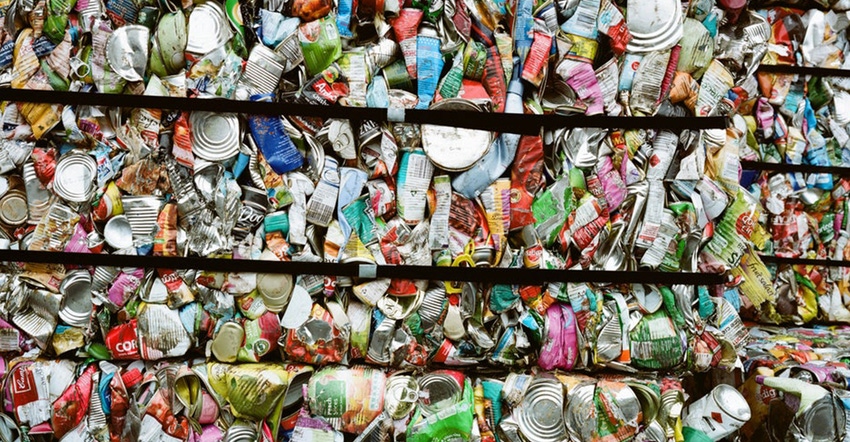New Study from International Aluminium Institute Examines Climate-Related Benefits of Can Recycling
A study commissioned by the International Aluminium Institute (IAI) and co-funded by Emirates Global Aluminium, Crown Holdings, Australian Aluminium Council, and Novelis reveals that effective global recycling of used beverage cans could lead to the annual saving of 60 million tonnes of CO2e (carbon dioxide equivalent) by 2030.

A study commissioned by the International Aluminium Institute (IAI) and co-funded by Emirates Global Aluminium, Crown Holdings, Australian Aluminium Council, and Novelis reveals that effective global recycling of used beverage cans could lead to the annual saving of 60 million tonnes of CO2e (carbon dioxide equivalent) by 2030.
The study, conducted by global management consultants Roland Berger, examines aluminum can recycling practices in six countries and offers recommendations to boost recycling rates.
The study assessed the waste management systems in Australia, Cambodia, South Korea, Thailand, the United Arab Emirates (UAE), and Vietnam, providing valuable insights into can collection, processing, and recycling across diverse regions and cultures. The findings indicate that these countries can be categorized into three groups based on their recycling mechanisms:
Countries Dependent on Informal Collection (e.g., Thailand, Cambodia, Vietnam): These nations rely heavily on informal workers for aluminum can collection, resulting in high recovery rates due to the economic incentive for the sector.
Developed Systems (e.g., Australia, South Korea): These countries employ complex waste management systems, including extended producer responsibility (EPR) and deposit return systems (DRS), which contribute to high recovery rates.
Transitioning Systems (e.g., UAE): These nations have developed collection infrastructure but lack mandatory or well-functioning EPR and DRS systems.
Despite variations in recycling practices, the study underscores the critical role aluminum cans play in reducing carbon emissions. Global consumption of aluminum cans is expected to rise by 50% from 420 to 630 billion cans annually between 2020 and 2030.
Marlen Bertram, IAI's Director of Scenarios and Forecasts, emphasized that 79% of all cans put on the market in the six studied countries end up being recycled into ingots for a second life, reinforcing the positive impact of aluminum recycling on carbon reduction. Recycling aluminum products emits only 0.6 tonnes of CO2e per tonne, compared to 16.6 tonnes for primary aluminum production.
Key takeaways from the study include:
Thailand leads with a can-to-can recovery rate of 78%, but 14% of cans still end up in landfills.
South Korea, with a 96% recovery rate, boasts the highest among the studied countries but recovers only 37% of cans for can sheet production.
Australia's voluntary EPR and DRS schemes contribute to a 74% recovery rate, but all cans are exported, with 48% used for can-to-can recycling.
The UAE faces challenges, with 67% of cans going to landfills, and only 20% used for can-to-can recycling.
Vietnam's informal sector generates high-quality scrap, but only 1% of cans are recycled can-to-can.
Cambodia reports high collection and recovery rates, with no domestic recycling capacity, leading to cans being primarily recycled into non-can products.
The study also highlighted opportunities for improvement, including increasing awareness of aluminum can recycling benefits, investing in infrastructure, and advocating for effective recycling schemes. Stakeholders and governments are urged to play a pivotal role in advancing aluminum can recycling to reduce carbon emissions and promote sustainability.
About the Author(s)
You May Also Like


